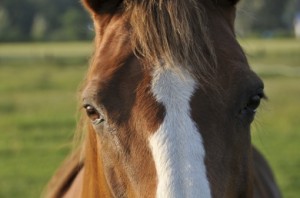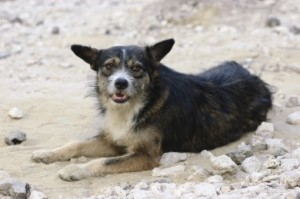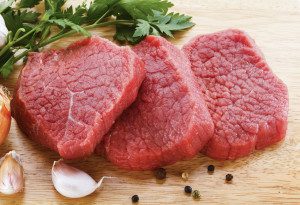Worldlog Semana 14 – 2014
La semana pasada salió a las noticias que la organización de inspección de animales de agricultura ‘Eyes on Animals’ investigó el origen de carne de caballo que se suele vender en los supermercados holandeses. El resultado de esta investigación es rotundamente chocante. Resulta que mucha carne de caballo en las tiendas neerlandeses es de caballos matados en Las Américas donde son maltratados severamente. Lógicamente hemos pedido un debate sobre este asunto y la mayoría ha apoyado nuestra petición.
Eyes on Animals investigó diversos subastas de caballo, mataderos y empresas de trasporte de ganado en los Estados Unidos, México, Canadá y Argentina. La carne de dichos caballos se trasporta a Europa extensamente. Durante trasportes de 36 horas no les dan apenas de comer y de beber ni descanso.. Camiones repletos de caballos exhaustos, heridos y demacrados son más regla que excepción.
Los inspectores vieron como los camioneros pegaban a los caballos caídos con barras de hierro o picanas eléctricas para que los animales se levantaran. En medio del caos los caballos adultos pisoteaban a potros hiriéndolos gravemente. Muchos potros morían lentamente. Trasportaban los animales bajo circunstancias climáticas extremas. Un ejemplo: solían trasportar caballos en un camión abierto en el calor del desierto. ¡Pedimos la prohibición de importación de carne de caballo desde los EEUU, México, Canadá y Argentina!
La semana pasada, en la Segunda Cámara, hice preguntas alrededor la caza de primos a perros callejeros en Rumanía. El viernes los cazadores robaron una clínica de perros en Rumanía. Las autoridades rumanas ofrecen dinero para cada perro cogido. Queremos que el gabinete neerlandés presione a las autoridades rumanas para que dejen ese sistema de premiar la caza y la matanza de perros callejeros.
Las autoridades rumanas siguen premiando la matanza de perros callejeros pagando un importe de 50 euros por perro matado. Es inaceptable que el gobierno de Rumanía aliente sus ciudadanos para que capturen y maten perros, con un incentivo tan perverso. Tal actitud cruel hacia animales callejeros es insostenible en un estado miembro de la Unión Europea. Quiero que el gobierno neerlandés presione al gobierno rumano para que dejen esa política de perros callejeros tan cruel con ese sistema de primos cambiando al método de captura, esterilización y soltar.
A finales de septiembre, el tribunal constitucional rumano aprobó la ley que causa la matanza masiva de los tres millones de perros callejeros viviendo en Rumanía. Esa nueva ley permite la matanza de perros callejeros tras la estancia de catorce días en un refugio, en el caso de que no queda suficiente espacio para guardar los animales o si no hay medios suficientes para comida o asistencia médica. En este momento están matando perros a escala masiva. ¡Hay que pararlo!
También pregunté sobre la carne de animales de matanza ritual, servida durante la cumbre nuclear en La Haya de la semana pasada. En la emisora Radio 1, el jefe de catering dijo que la carne halal fue parte del menú ofrecido a los jefes de gobierno.
Mi pregunta al Gabinete es si esa carne fue de animales matados sin anestesia. No había que servir carne de animales matados sin anestesia a nadie sin preguntar. Y hay que poner fin a la matanza ritual sin anestesia lo antes posible. Si no hay prohibición, había que informar los consumidores – en este caso los participantes de la cumbre- del hecho que se está ofreciendo carne matada ritualmente sin anestesia.
No te pierdas este vídeo empezando la semana:
752 Rescued Hens Feel Sunshine for the First Time
Un consejo para quien piense que la economía es más importante que la ecología.
¡Hasta pronto!
Last week, it was in the news that Eyes on Animals (Inspection Organisation for Farm Animals) conducted an investigation into the origin of horse meat sold in Dutch supermarkets. The results of this investigation are shocking. Much of the horse meat sold in Dutch shops is from horses that are slaughtered in North and South America, and which are seriously mistreated. We asked for a debate on this subject and a majority has supported our request.
For two years, Eyes on Animals inspected various horse auctions, slaughterhouses and horse transportations in the United States, Mexico, Canada and Argentina. The meat of those horses is exported to the Netherlands on a large scale. During these transports, which sometimes take up to 36 hours, the horses get no or hardly any water, food or rest. Overcrowded cattle trucks with exhausted, injured and starved horses are no exception.
Inspectors could see how the drivers hit horses, which had fallen, with iron bars and electric sticks to get them up again. Foals were trampled by adult horses and were severely injured or died slowly. The animals were transported under extreme weather conditions. For example, horses were transported during severe desert heat in cattle trucks with no roofs. We want to ban the import of horse meat from the United States, Mexico, Canada and Argentina!
I asked Parliamentary questions last week about the premium hunting for stray dogs in Romania. Last Friday, premium hunters stole all the dogs from a dog clinic in Romania because the Romanian authorities pay money for each dog that is caught. We want the Dutch government to urge the Romanian authorities to stop the system where people are rewarded for catching and killing stray dogs.
The Romanian authorities keep encouraging the killing of stray dogs with a remuneration system where they reward an amount of 50 euros for each dog killed. It is unacceptable that the Romanian Government encourages its civilians with a perverse remuneration incentive to catch and kill dogs. Such a cruel attitude towards stray animals is unacceptable in a Member State of the European Union. I want the Dutch government to urge the Romanian government to stop its cruel stray dog policy using a remuneration system and to change their policy into one of providing shelter, neutering and returning them.
Late September last year, the Romanian Constitutional Court approved an act that now leads to a mass slaughter among three million stray dogs living in Romania. The new Act allows the killing of stray dogs after they have been in a shelter for fourteen days, or if there is not enough room to keep them in the shelters, or if there are no means for sufficient food or medical care. Dogs are killed en masse. This has to stop!
I have also asked Parliamentary questions about the meat that was served during the Nuclear Security Summit in The Hague last week, which was apparently from ritually slaughtered animals. According to the main caterer in an interview on Radio1, halal meat was part of the lunch served to the government leaders.
I want to hear from the parliament if this meat was from animals that were slaughtered without sedation. Nobody should be served meat from ritual slaughter without particularly asking for it. Ritual unsedated slaughtering should be put to an end as soon as possible and for as long as it is not banned, consumers – in this case the participants to the Summit – should be informed of the fact that they are served meat from unsedated ritual slaughter.
You should start your week with this small film:
752 Rescued Hens Feel Sunshine for the First Time
Tip for anyone who thinks that economy is more important than ecology.
Until soon!


